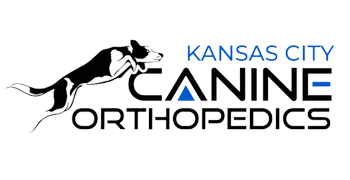
Animal Tendon Injuries and Treatment Options
Tendon injuries are relatively common in active dogs, horses, and people. Some of these injuries can be dramatic and require surgical repairs, such as Achilles tendon rupture, biceps tendon injury, medial shoulder ligament and tendon injury (medial shoulder instability or MSI), and patella tendon rupture.
At Kansas City Canine Orthopedics (KCCO), we specialize in diagnosing and treating various tendon injuries in dogs, ensuring optimal outcomes for your pet. Our team excels at these surgeries and has published work on the management (including surgery) of medial shoulder instability, Achilles tendon repair using allograft reconstruction, and patella tendon repair using allograft tendons. Fortunately, those injuries are the minority.
Understanding Tendon Injuries in Dogs
Tendon injuries can affect multiple areas of a dog’s body, including the Achilles tendon, biceps tendon, and digital tendons. Common conditions we treat include:
- Achilles tendon injuries: Ranging from mild strains to complete ruptures.
- Biceps tendonitis in dogs: Inflammation or injury to the biceps tendon, often resulting in lameness.
- Medial shoulder instability (MSI): A condition involving ligament and tendon injuries in the shoulder.
- Patellar tendon injuries: Including tears and ruptures requiring surgical repair.
Certain injuries, such as a canine mid-digital tear, supraspinatus tendinopathy, and iliopsoas tendinopathy, may not need surgery but do require accurate diagnosis and extensive rehabilitation, with an emphasis on accurate diagnosis, staging (ie assessing the severity of the injury), and non-surgical management.
Many of these areas are within KCCO’s area of expertise including diagnostic nano-arthroscopy, which has rapidly become the single most effective diagnostic for visualizing biceps tendon injury and medial shoulder instability. Musculoskeletal ultrasound and MRI are also particularly useful for the assessment of biceps, supraspinatus, and iliopsoas tendinopathies. Many such tendon injuries require physical rehabilitation and some are also treated with orthobiologics (platelet-rich plasma, autologous protein solution, and stem cells).
Signs of Tendon Injuries in Dogs
Recognizing the signs of a dog tendon injury can help you seek timely care. Look for symptoms such as:
- Limping or favoring one leg.
- Swollen joints or tendons.
- Difficulty walking or jumping.
- Pain or stiffness in affected limbs.
Conditions like a dog pulled leg muscle, sprained ankle in dogs, or dog torn muscle may present similarly and require professional evaluation to confirm the diagnosis.
If your dog is showing signs of a tendon injury or other orthopedic issues, don’t hesitate to contact us. Early diagnosis and intervention can prevent complications and improve your dog’s quality of life.
Diagnosis and Advanced Imaging
At KCCO, we use cutting-edge diagnostic tools to identify tendon injuries in dogs accurately:
- Nano-arthroscopy: A minimally invasive method to visualize tendon damage, especially for biceps tendon injury and MSI.
- Musculoskeletal ultrasound: Ideal for detecting soft tissue injuries, including supraspinatus tendinopathy and iliopsoas tendinopathy.
- MRI scans: Particularly useful for complex cases like canine ankle injuries or sacroiliac luxation.
These technologies allow us to stage the injury and determine whether surgical or non-surgical treatment is most appropriate.
_______
If your dog has a tendon injury, please don’t hesitate to reach out to us, as we would be happy to help with diagnosis, staging, and either non-surgical or surgical treatment depending upon which appears the best option for your dog.
Veterinary Services
Below are all of the veterinary services we offer at Kansas City Canine Orthopedics. If you have any questions regarding our services, please feel free to call us.

